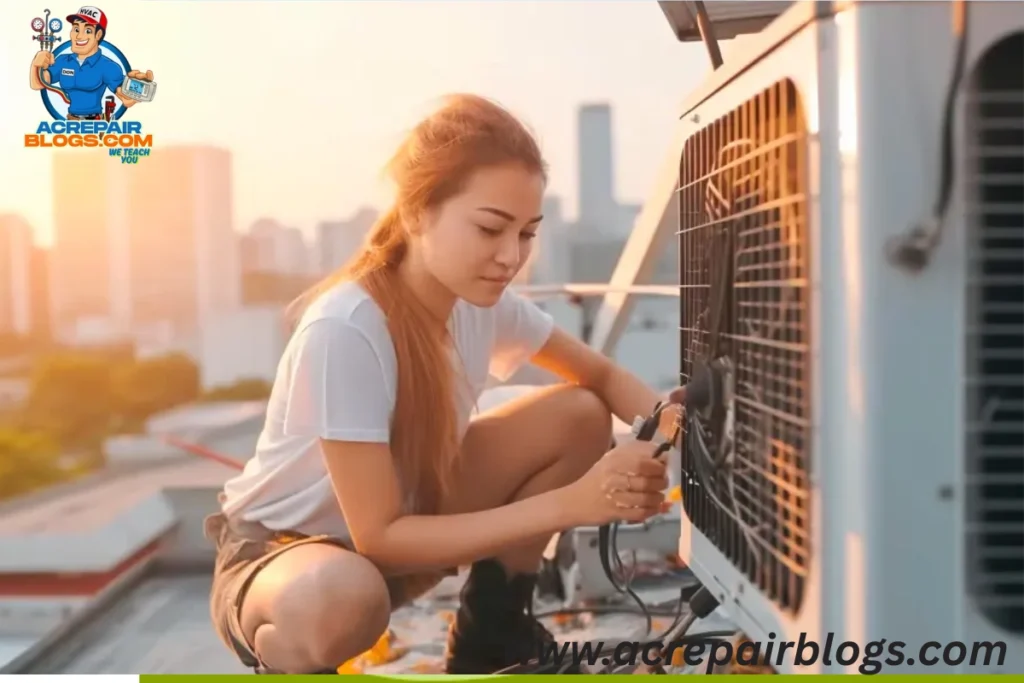If you’ve ever looked for a new heating or cooling system, you’ve probably heard the term HVAC. But what exactly does HVAC mean, and why should every homeowner understand it?
What Is HVAC?This new HVAC guide is designed to help you understand what HVAC is, how these systems work, the different types available, and what you need to know to keep yours running efficiently. Whether you’re buying your first home, considering an upgrade, or simply curious, this HVAC guide for homeowners will give you everything you need to know in one place.
What Is HVAC?
HVAC stands for Heating, Ventilation, and Air Conditioning. This is how the system keeps your home comfortable all year round:
- Heating your home in winter
- Cooling your home in summer
- Ventilating by filtering and circulating clean air
An HVAC system controls the temperature, the air quality, and how comfortable the whole place is.
Components of an HVAC System
A typical HVAC setup includes several key components. Understanding them helps homeowners troubleshoot issues and make better upgrade decisions.
- Heating Unit (Furnace or Heat Pump)
- The furnace burns fuel (gas, oil, or propane) or uses electricity to heat air.
- By moving heat around, a heat pump can both heat and cool your home.
- Cooling Unit (Air Conditioner or Heat Pump)
- Central AC units use refrigerant to absorb heat indoors and release it outdoors.
- Heat pumps serve as both heaters and coolers, making them highly efficient.
- Ventilation System (Ductwork and Vents)
- Ducts distribute conditioned air throughout your home.
- Proper ventilation prevents stagnant air, odors, and high humidity.
- Thermostat
- Acts as the “brain” of the HVAC system.
- Smart thermostats allow remote control and energy-saving features.
How Does an HVAC System Work?
To fully answer “What is an HVAC system?” let’s break down how each part works together:
- Heating Mode: The furnace or heat pump makes warm air and sends it through ducts and vents.
- Cooling Mode: The AC or heat pump removes heat and humidity from the air, releasing cool air inside.
- Ventilation: Fans and ducts circulate air while filters trap dust, allergens, and pollutants.
This cycle keeps the air in the building clean and comfortable at the same time.
Types of HVAC Systems
Choosing the right HVAC system depends on your home size, budget, and climate. Here are the most common options:
- Split SystemsWhat Is HVAC?
- The most common setup.
- Includes an indoor unit (furnace/air handler) and an outdoor unit (AC or heat pump).
- Hybrid Split Systems
- They can switch between gas and electric to save energy, just like split systems.
- Ductless Mini-Split Systems
- Great for homes without ductwork.
- Allows zone-specific temperature control.
- Packaged Systems
- All components housed in a single unit, often installed outdoors or on rooftops.
- Geothermal Systems
- Uses underground loops to transfer heat.
- Extremely energy-efficient but higher upfront cost.
Why Is HVAC Important for Homeowners?
Understanding your HVAC system isn’t just about comfort it’s about cost savings, energy efficiency, and health.
- Comfort: Keeps your home cool in summer and warm in winter.
- Energy Savings: A properly maintained system reduces utility bills.
- Air Quality: Filters out pollutants, allergens, and mold spores.
- Home Value: Modern HVAC systems increase resale value.
Signs Your HVAC System Needs Attention
Even the best HVAC systems need maintenance. Watch out for these warning signs:
- Uneven heating or cooling across rooms
- Strange noises or odors from vents
- Higher-than-usual energy bills
- Poor airflow or weak vents
- Frequent on/off cycling
These issues often point to clogged filters, duct leaks, or mechanical problems.
HVAC Maintenance Guide for Homeowners
Preventive care extends the life of your HVAC system and saves you money. Here’s a homeowner-friendly HVAC maintenance checklist:
DIY Maintenance
- Replace air filters every 1–3 months
- Keep vents and registers clean and unblocked
- Clear debris around outdoor units
- Check thermostat settings regularly
Professional Maintenance
- Schedule a bi-annual HVAC tune-up (spring & fall)
- Have ducts inspected every 3–5 years
- Get refrigerant levels checked
- Inspect wiring, motors, and safety controls
Cost of an HVAC System
One common homeowner question is: “How much does an HVAC system cost?”
- New HVAC installation: $5,000–$12,000 (depending on size and type)
- Annual maintenance: $150–$300 for routine servicing
- Repairs: $100–$1,500 depending on the issue
Though it’s an investment, a modern and efficient system can save 20–40% on energy bills over time.
FAQs About HVAC
Q1: What is HVAC in simple terms?
HVAC stands for heating, ventilation, and air conditioning systems that regulate your home’s comfort and air quality.
Q2: Do all homes need HVAC?
Most modern homes have HVAC systems for year-round comfort, though some may use window units or space heaters.
Q3: What’s the lifespan of an HVAC system?
Typically 10–15 years, but with proper maintenance, some can last up to 20 years.
Q4: What’s the best HVAC system for a new homeowner?
It depends on your budget, home size, and climate. A split system is the most common and cost-effective choice.
Final Thoughts
Now that you know what an HVAC system is, you can make smarter decisions about maintaining or upgrading yours. HVAC systems are more than just heaters and air conditioners they’re an essential part of your home’s comfort, energy efficiency, and air quality.
By following this HVAC guide for homeowners, you’ll not only save money but also ensure your home stays comfortable all year long.
If you’re considering a new system, explore energy-efficient options and schedule regular tune-ups to keep everything running smoothly.
